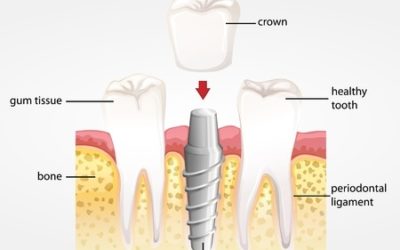Wisdom teeth (third molars) usually come in between the ages of late teens or early adulthood. The name implies you have collected some “wisdom” by the time they come in. Not everyone’s wisdom teeth come in. Approximately 35 percent of Americans never develop wisdom teeth. Most people who have wisdom teeth need them extracted. This is because they usually come in crowded against your other teeth, or become impacted in the gum. They may also become infected and need removal. So how much do you know about wisdom teeth? Here are some interesting myths versus facts.
Wisdom Teeth Must Always Be Extracted
One of the most common misconceptions is that all wisdom teeth must be removed. Today, dentists don’t automatically remove your wisdom teeth unless they become infected, impacted, or they are crowding the rest of your teeth.
Wisdom Teeth are Throwbacks of Evolution
While at one point we may have developed wisdom teeth to help us eat and speak. Wisdom teeth aren’t essential for eating and speaking today, and our ancestors may have had larger jaws promoting the development of wisdom teeth. Unfortunately, there is no scientific data to support this notion.
Wisdom Teeth Always Come In Crooked
Around 85 percent of people will need to have their wisdom teeth extracted. Generally, they come in one of five ways.
- Correctly (vertical)
- Crooked towards the front of your mouth (mesio-angular or mesial)
- Crooked towards the back of your mouth (disto-angular or distal)
- At a 90 degree angle on its side (horizontal)
- Failing to break through the gums
If your wisdom teeth come in like the last four examples, they will need to be removed.
Extraction of Your Wisdom Teeth is Always Done Surgically
If your wisdom teeth are impacted, or have not broken through your gums, you may need oral surgery. But most wisdom teeth can be extracted under local anesthesia or with sedation. Today you doctor has new techniques and technology to make extraction easier and painless.
If you have questions about wisdom teeth, or you need an appointment because of pain, call or contact Smith and Cole Dentistry today.



